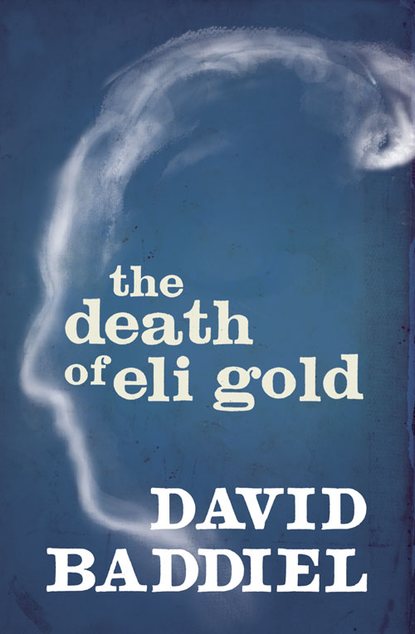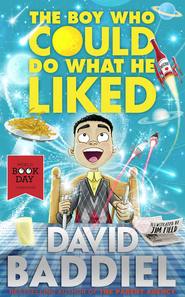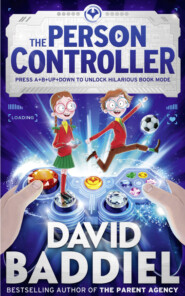По всем вопросам обращайтесь на: info@litportal.ru
(©) 2003-2024.
✖
The Death of Eli Gold
Автор
Год написания книги
2018
Настройки чтения
Размер шрифта
Высота строк
Поля
Mommy kept on looking at me, doing that thing she does of really looking at me, like she can see right behind my eyes into my brain or something. ‘No, darling, he isn’t …’
‘Well, how are we going to have the funeral then?’
‘Oh. Well. Yes. His body will come back. Well, not to here exactly, but …’ She stopped speaking and turned to look out of the window.
‘Daddy wants to be cremated, doesn’t he?’ I said. Cremated was a word I got taught by Elaine just before Daddy went into his hospital. Mommy told her to teach me all the death words, cremated, coffi n, undertaker, postmortem, bereavement, funeral (although I knew that one already) and mourning, which although it sounds the same is different from morning. After I had learnt all these, I went and found out a few others by putting the word ‘Death’ into Google onto Daddy’s computer: decomposition, decay, rigor mortis, and putrefaction.
‘Yes, darling … but the point is: he isn’t coming back, not really. And I know it’s hard but I think it’s important that you come to the hospital because – here’s the thing – nobody knows when Daddy is going to die. And I think it’s really important that you are there when that happens.’
‘But why?’
‘Colette …’ She put her hand on top of mine. I was looking away. I didn’t want to look at her because I was cross and I kind of knew that what I was saying was wrong but I didn’t really know why, and I knew that she would be doing that thing with her eyes again and if I looked at her doing that it would maybe make me cry proper or be more mad. ‘I don’t expect you to understand. Maybe if I was Daddy – maybe if I had his words – I could explain it to you. But for now, you’ll just have to trust me. Because you have to be there not just for him, but for you. I know that if you’re not there when Daddy dies, when you’re older, you’ll regret it. You know what regret means, don’t you?’
I nodded, but without turning round to look at her. ‘It means when you do something and then you think you shouldn’t have.’
‘Yes. Or in this case, when you don’t do something and then you think – maybe for your whole life – that you should have.’ She took my chin in her hand and moved my face back so that she could look at me. I thought about holding my neck stiff so she couldn’t do that, but then I thought that might hurt, and also I wasn’t so cross by this time.
‘But won’t Simone or Jules regret it that they won’t be there?’
Mommy’s lips went all tight. ‘That is their decision. Which they will have to live with. So, Colette …’ she said. ‘Of course, it’s up to you. I don’t want you to be there if you don’t want to be there. But I just want you to think about what I’ve said. And while you’re thinking about it, I’m going to go and get ready to go. And if you still don’t want to come with me when I come back, that’s fine.’
And then she got up and went out of the dining room. I sat there for a bit, eating little bits of my cold pancake with my fingers. Then I started rubbing the bits before I put them in my mouth and they went all spongy. Aristotle came up and rubbed the side of his face on my leg. He was purring, and it was like he was saying, It’s OK: you can go. I’m OK. So I thought, OK, I’ll go. I kind of knew that that was what I was going to do all along.
But when I got down from the table and picked up my knapsack – the one shaped like a rabbit – I had a weird thought, which was: I wonder what Daddy would do. I don’t mean what he would do really, because Daddy wouldn’t want to watch Marmaduke, he never even watches any films, but I just meant if he was like me or if I was more like him or whatever. Because Mommy sometimes says to me when I don’t know what to do about something – she says: OK. What would Daddy do? And I thought: he wouldn’t go. He’d stay in and do movie night.
* * *
Eli and Violet were married quickly, in the manner of wartime romances. Eli was one of many American soldiers stationed in the UK in preparation for the D-Day landings, and the possibility that he might not return from Europe propelled their engagement almost as fast as the Nazi bullets over the dunes of Normandy. This possibility – that Eli might be killed in action – was what defined their love in its early stages. It was a possibility that Eli seemed to hold, Violet felt, ironically: he would talk about his chances of dying with a smirk and a raised eyebrow, his voice slowing to that Geiger-counter drawl it always did when he wanted to signal that nothing of what he was saying was serious. She had never met anyone so infused with irony, so unable to present any statement as the thing itself, always implying that nothing was truly meant. This applied across the board to Eli’s discourse, whether in the matter of their love, his death, or who they should invite to their wedding.
The one picture Violet still owns of their wedding day lies in the same shoebox that contains Eli’s love letters. Her back cracks like an ice cube tray as she bends to pick it up from underneath her single bed, laid as ever with too much bedding – her bed seems to have a belly, Violet always thinks, reminiscent of those on the malnourished African children she sometimes sees on the television news. She once mentioned this to one of the maids, Mandy, but then felt anxious that it might have been a wrong thing to say, as Mandy, like all the maids and most of the nurses, is black. The presence of so many coloured people makes Violet anxious. She is not intrinsically racist: like most of her generation, it is more that the presence of black people around her, existing in a taken-for-granted, unremarked-on manner, serves as a constant reminder that the world is no longer the one she knows.
The box, however, is too far under the mattress for her to reach just by bending, and getting down on her knees is out of the question – she imagines the joints turning to powder at the first touch of the hard, dark lino. Bewildered, she sits down on her one armchair, a high-backed plum-red reproduction antique, last reupholstered in 1973, but still plush enough to look faintly outrageous in this setting. Violet knows that if she sits long enough, she will forget what it was she was concerned about, anyway: when this first started to happen it was intensely worrying, but lately she has begun to think of it as a comfort.
Before her memory has a chance to erase the issue of the shoebox, though, she remembers her walking stick, waiting for her at the door like a faithful dog. Getting out of the chair, with its relatively deep cushion, is difficult; halfway up, her elbows lock and her arms tremble – making her look for a second like a gymnast straining on the parallel bars – before she pushes herself off.
She retrieves the stick from the door. Violet’s walking stick was a present from her sister: as Valerie didn’t forbear to mention, it cost over £40. Violet likes it, likes the feel of the silver-plated handle, and knows the stout brown wood of the shaft will not easily break, but has enough of a sense of irony herself to feel the sad absurdity of a walking stick being her one luxury item. She goes back to the bed – not a long walk: her room, kitchenette included, is something of a shoebox itself – and, bending again, flails the stick back and forth under the bed, knocking out first her crocheted slippers, before hitting something heavier with a clang: it is her chamber pot, thankfully empty. She breathes heavily, and tries again: this time, her stick alights on something that feels right. She drags it towards her and, sure enough, eventually, the edge of the shoebox, its top askew, appears by her feet.
Another difficult bend to pick it up: the box is heavier than she had imagined. When she sits back down with it on her lap, she realizes why this is – having thought the shoebox contained only her letters from Eli and her wedding photo, it has over the years become a more general repository. Inside are crinkled black-and-white photos of her nephews and nieces as children, less crinkled, colour photos of their children, a random brooch, an old purse, and the letter from Redcliffe House saying how pleased they were to accept her application for a room. There are also photographs of her, eerie images of her girlhood, so po-faced it seems as if she must have grown up in a much earlier era, before people understood that the thing to do on camera was smile, plus one fragment of her as a young adult on a beach, waving and grinning and holding her coat around herself for warmth. And then there it is, sepia as a cell from a silent film: her wedding photograph. It has a strange, lopsided composition: she is standing flanked by her family, her mother and father and Valerie, their smiles tight with self-consciousness, but there is no one except Eli on his side, because he didn’t invite any relatives.
Violet remembers the day. It was April, and spitting with rain. She had wanted to wait until later in the summer so as to guarantee the weather but the shadow of Eli’s imminent dispatch to France made that impossible. In the photograph, the rain has polished the steps of Streatham Town Hall, on which they are standing, black. Violet had always imagined a church wedding, but Eli hadn’t been keen.
‘Why not?’ Violet had said, already feeling the clench of anxiety in her stomach that always accompanied any attempt to challenge him. This discussion took place in the Piccolo, a café near Liverpool Street station: he had only time for a short meeting before catching a train back to his barracks near Colchester. It was January, and the radiators were on full blast, steaming up the windows – though the one they were sitting by produced more noise than heat, for which Violet, in her woollen winter coat, was grateful.
‘Oh, come on, Birdy,’ he said, his eyes fixed on his spoon, idling in the froth of his coffee, ‘let’s not fight.’
Birdy was a name he had started calling her one night coming back from the pictures. They used to go every Friday to the Streatham Astoria, a place Violet loved. It was like an Egyptian palace, she thought, with its columns and murals and friezes in red, green and gold; even in the ladies’ toilets there was a wall-painting of a figure bathing in a lotus pool. They’d seen a movie about a female internment camp in France, in which the prisoners put aside all their differences to help hide a group of shot-down British airmen from the Nazis: it was called Two Thousand Women. One of the women was played by Jean Kent, who Eli always said Violet looked like. In the film, this character was called Bridie, and Eli said, on exiting the Streatham Astoria, that he was more convinced than ever that Violet looked like her, so he swapped round the I and the R and started calling her Birdy. It made no real sense, but formed part of a happy memory, and so had stuck.
She looked away, hurt by the implication that they were a couple who regularly fought, the truth being that their relationship – or, at least, what sense of their relationship she could garner from an engagement conducted so far mainly in letters and snatched meetings – ran very smooth, certainly compared to what she had seen in other couples. Gwendoline and her husband rowed so much that Violet sometimes wondered if Henry, a conscientious objector, wasn’t trying to fight his own war within the confines of their tiny flat in Shoreditch.
She also knew, however, that their freedom from fighting depended on her assumed complicity; so felt the fist in her stomach tighten, even before she decided to continue:
‘Is it … is it because you’re Jewish?’
He looked up, his face set behind the shield of his trademark grin, the one that brought his nose over his mouth, making him look, Violet thought, Jewish. ‘Of course it’s because I’m Jewish.’
‘But your mother wasn’t. Was she? Catholic, you said. So it doesn’t matter, anyway.’
Eli lit a cigarette. He still had the Zippo. There was too much petrol in it, and the flame seemed to cover half his face, making Violet back off.
‘And you’ve told me you don’t believe in religion, anyway.’
‘I don’t.’
‘So what difference does it make?’
He frowned. The lines on his face, very pronounced in the grey light falling through the window, joined up to form circles, like contours around a mapped hill. She had noticed now many times how Eli’s facial lines served to exaggerate – to underline – his every mood.
‘Well, when I say I don’t believe in religion, what I mean is: I don’t believe in it. Any of it. So getting married in a church – a building which only exists because one thousand nine hundred years ago the Jews got so fiddly about the pissy little dos and don’ts of God-bothering that a whole new mutant religion had to be born out of its already exhausted old womb – that seems to me even more hypocritical than doing it in a synagogue …’
The radiator between them coughed and shook violently, like an old smoker waking up. Eli looked at it with interest.
‘What about me?’ Violet said. ‘What about what I want?’
He glanced at her, surprised. She felt her own eyebrows forming virtually the same expression: the idea of Violet introducing her desires into their conversation – indeed, the idea that Violet had desires, or, at least, desires that could be put up in conflict with Eli’s – was as startling to her as it was to him.
‘Birdy,’ he said, putting his two hands on the one of hers that was resting on the table: she felt their enveloping weight and warmth. ‘What’s more important? Getting married, or where we get married?’
She looked at his eyes, scanning them for insincerity. In this instant, their deep brown seemed to her the opposite: the substantial brown of leather book covers and panelled walls. And if eyes are the windows to the soul, like her mother was always saying, then substance, tangibility, something in Eli’s soul to hang on to, was what she needed to see in those windows. She knew that his words could as easily have been said by her to him – he was the one who didn’t want to get married in a church – but this fleeting moment of Eli being serious – serious, for once, about them – was more important.
‘You’re right, of course,’ she said, adding her other hand to the hand pile on the table. Their four hands together, his two in between hers, looked like a sandwich in which the dark meat filling could not be contained by the two small slices of white bread. The radiator croaked again, and then gushed, as the hot water inside forced its way along the cast-iron coils.
‘It must be like a coral reef,’ said Eli, looking away from her towards the sound.
‘Sorry?’
‘Inside the radiator. The water’s having such a hard time getting through it, heating it up – inside, it must be studded with rocks of fur and scale, sprouting off the sides and up off the bottom, like a coral reef.’
Violet looked towards the heating implement. ‘Yes,’ she said.
‘Have you got a pen?’
She shook her head.
‘What, nowhere? Not in amongst all the God knows what you carry in your handbag?’ Underneath its normal New York insouciance, his voice betrayed, a hint of petulance.
‘I don’t think so,’ she said, picking her handbag up off the floor and starting to file through it anyway. ‘You’re the one who wants to be a writer.’
‘I know.’ He opened his palm. ‘But I’m also the one who can’t keep hold of anything.’











